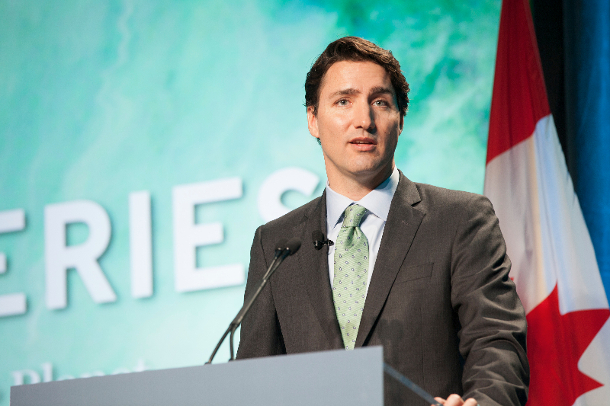The Trudeau government’s recent actions — declaring a climate emergency and re-approving the Trans Mountain expansion project within two days — aren’t just hypocritical: they’re morally equivalent to climate change denial.
The United Nation’s authority on climate change recently recommended “rapid, far-reaching and unprecedented changes in all aspects of society” to counter an imminent crisis, and Prime Minister Justin Trudeau’s recent decisions have flagrantly ignored the UN’s counsel.
He’s bent over backwards to ensure the Trans Mountain pipeline’s expansion, propping up the project with extensive financial and rhetorical support. In the process, the Trudeau government has perpetuated the prerogatives of an industry that has funded climate change denying research and (knowingly) pollutes the planet.
Make no mistake: Trudeau’s actions represent climate change denial “with a human face,” a darker version of Czech communist leader Alexander Dubček’s 1968 description of his ill-fated liberalization program as “socialism with a human face.”
Trudeau and the Liberal party affirm the reality of global warming in theory, but they effectively deny the phenomenon in practice by facilitating a harmful status quo and belittling the urgency of radical change.
This is how climate change denial will increasingly look in the future: a mixture of symbolic proclamation and strategically inadequate policy.
With flooding, suffocating wildfires and abnormal temperatures across much of the country, the climate crisis isn’t just a theoretical concern for most Canadians. Global warming’s impacts are now apparent, a fact that’s reflected in a recent poll showing that over two-thirds of Canadians consider stopping climate change “a priority.”
Given an increasingly green electorate, politicians like Trudeau or Conservative Leader Andrew Scheer risk their electoral viability if they deny climate change outright, or fail to deliver convincingly effective climate policies. But the energy sector is a powerful constituency, too.
So how can the interests of the environmentally conscious and the environmentally destructive be reconciled?
One solution for politicians is to propose eco-friendly policies that still fall short of the minimum required to fight the climate crisis. They embrace entirely symbolic proclamations about climate emergencies, or carbon taxes that are woefully inadequate to meet the Paris Agreement 2030 emission targets.
This is the pragmatic compromise for politicians unwilling to deny the existence of a climate crisis, but equally reluctant to restrain the fossil fuel industry.
Half measures such as the current carbon tax sustain the illusion that our governments are preventing global warming, and so placate those with tree-hugging tendencies. And unlike more ambitious proposals, a carbon tax does not fundamentally threaten corporations’ perceived right to destroy the environment for profit (which probably explains the carbon tax’s popularity amongst oil barons) and leaves the fossil fuel industry contented.
This is Trudeau’s environmental policy: strategic inadequacy. Nothing effective enough to actually stop climate change and offend Husky’s shareholders; nothing ineffective enough to anger worried voters.
As the UN report shows, tackling global change will involve a significant shift in our modes of production and consumption. Our prime minister is attempting to facilitate the comforting illusion that half-hearted carbon taxes, non-binding emergency declarations and wishful thinking will reduce global temperatures — but that’s not effective climate change policy.
It’s climate change denial with a human face. ![]()
Read more: Energy, Federal Politics, Environment
















Tyee Commenting Guidelines
Comments that violate guidelines risk being deleted, and violations may result in a temporary or permanent user ban. Maintain the spirit of good conversation to stay in the discussion.
*Please note The Tyee is not a forum for spreading misinformation about COVID-19, denying its existence or minimizing its risk to public health.
Do:
Do not: